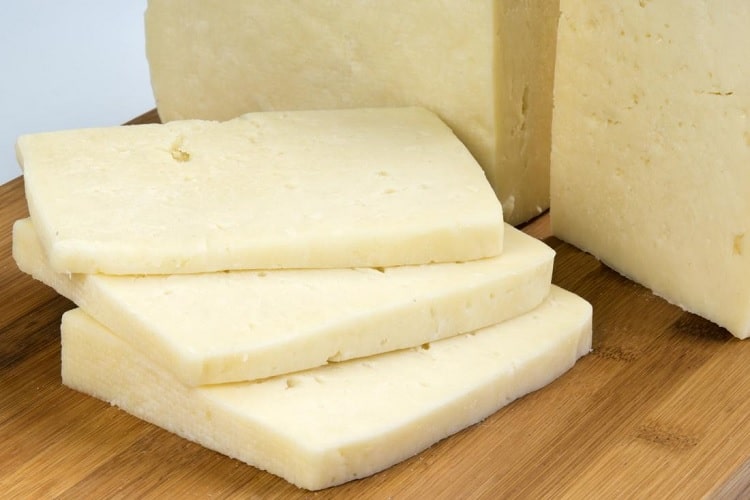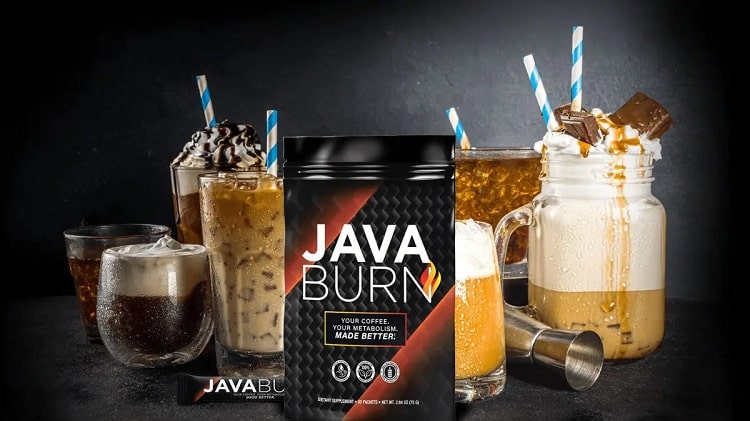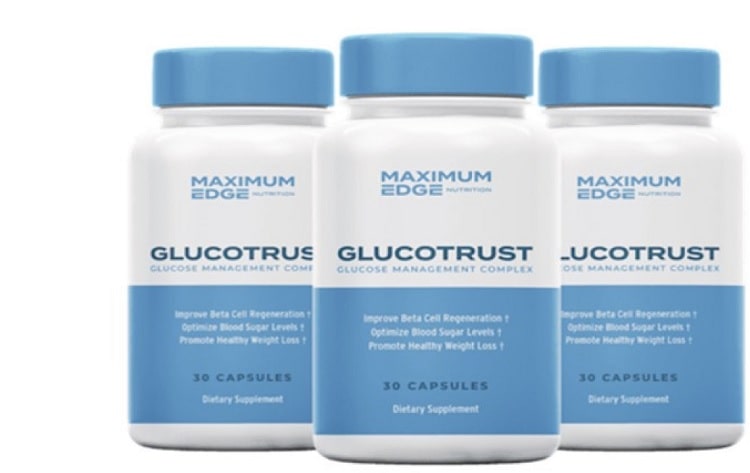The Delicious Way To Lose Weight: Why Cheese Might Be Your New Best Friend
Whenever you think of a delicious creamy recipe, you can’t imagine it without the cheese. People all around the world enjoy different forms of cheese in their foods on a regular basis. Although cheese is one of the most popular dairy products all around the world, people on their weight loss journey are skeptical about including cheese in their diets. This is because of the high calorie and high-fat content in cheese.
Cheese is a dairy product that is prepared by adding bacteria or acid to milk and processing the solid parts of the milk. While some people are concerned about consuming cheese during weight loss, what they fail to notice is that cheese is packed with nutrients that can support weight loss. Including cheese in a healthy diet plan can help you lose weight.
This article will help you get a better understanding of whether cheese is good for weight loss. We will also provide ways in which you can incorporate cheese into your diet to lose weight steadily.
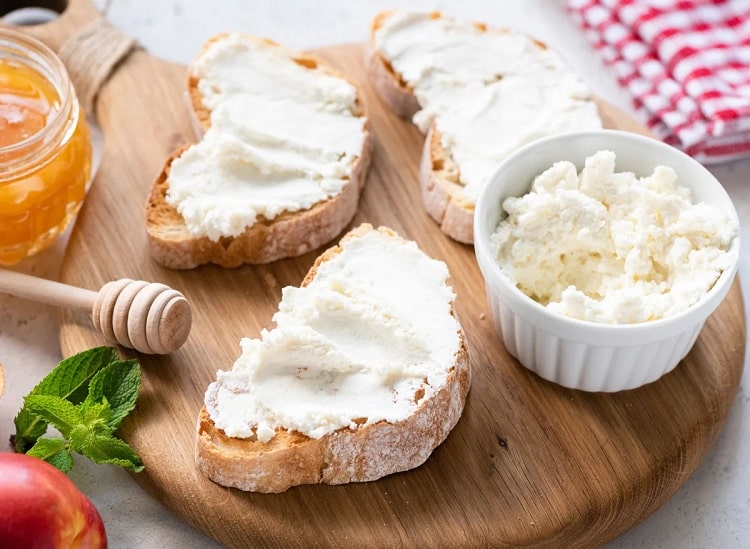
Is Cheese Good for Weight Loss?
Cheese is an excellent source of protein and calcium, both of which are found to support weight loss. Almost all cheese varieties are packed with quality protein. The high protein content in cheese slows down the movement of food out of the stomach, thus keeping you full for long hours. Eating cheese in moderation thus increases the sensation of satiety and reduces excess calorie consumption.
Studies show that protein can increase metabolism and help your body burn more calories even at rest. Protein also has an impact on appetite-regulating hormones, thus stimulating satiety and modulating food consumption. A one-ounce serving of any cheese type contains around 6 g of protein, making it a good source of protein.
When you increase your protein intake, your blood sugar levels will be balanced. Having control over your blood sugar levels reduces blood sugar spikes, which increases hunger levels and could result in weight gain. Including cheese in moderation can help regulate your blood sugar levels and support weight loss.
Cheese is also loaded with calcium, which helps with weight loss. When consumed as part of a calorie-controlled diet, dairy products like cheese can help you lose weight. A systematic review published in the International Journal of Obesity in 2012 revealed that including dietary products like cheese in an energy-restricted diet had a significant reduction in body fat mass, body weight, and waist circumference in subjects. The conclusions were made in comparison with usual weight loss diets.
Some cheese varieties contain probiotics, which are beneficial for your gut health. When your gut health is improved, you can lose weight steadily. Your gut microbiome has a considerable impact on weight loss. This is why gut health is essential for weight loss.
Cheese, when consumed in moderation as part of an energy-controlled diet, is thus good for weight loss.
How to Eat Cheese for Weight Loss?
Cheese can help you lose weight when you follow certain methods of consumption. You can enjoy its flavors without compromising your weight loss by adopting the following methods.
Cheese can be a great choice for low-carb diets because it is low in carbohydrates. The nutrients in cheese, like vitamin A, vitamin B-12, and potassium, help maintain health while losing weight.
- Choose low-fat options: As cheese is rich in saturated fat, you should choose the one with low fat or no fat for weight loss. Besides that, choosing low-fat cheese can help you keep the calories within your daily goals. A one-ounce serving of full-fat cheese varieties typically has a calorie range between 72 and 125. Opting for fat-free brands helps with weight loss because of the cheese type’s reduced calorie content.
- Be mindful of your portions: Although cheese is good for weight loss, it is packed with calories. Thus, in accordance with your daily nutritional needs, level of activity, and goals, you should keep your cheese consumption to one ounce per day for weight loss.
- Choose low-sodium varieties: Store-bought cheese can be high in sodium. Before making a purchase, it is best to check the label and choose low-sodium varieties for weight loss. This is due to the fact that increased sodium consumption leads to water retention, which could hinder weight loss.
The 9 Best Cheese Types for Weight Loss
Eating cheese as part of a calorie-restriction diet can help with your weight loss efforts. Every cheese has a unique nutritional profile. Thus, choosing healthy varieties can facilitate weight loss. We provide below the nine best cheese types for weight loss.
Blue Cheese
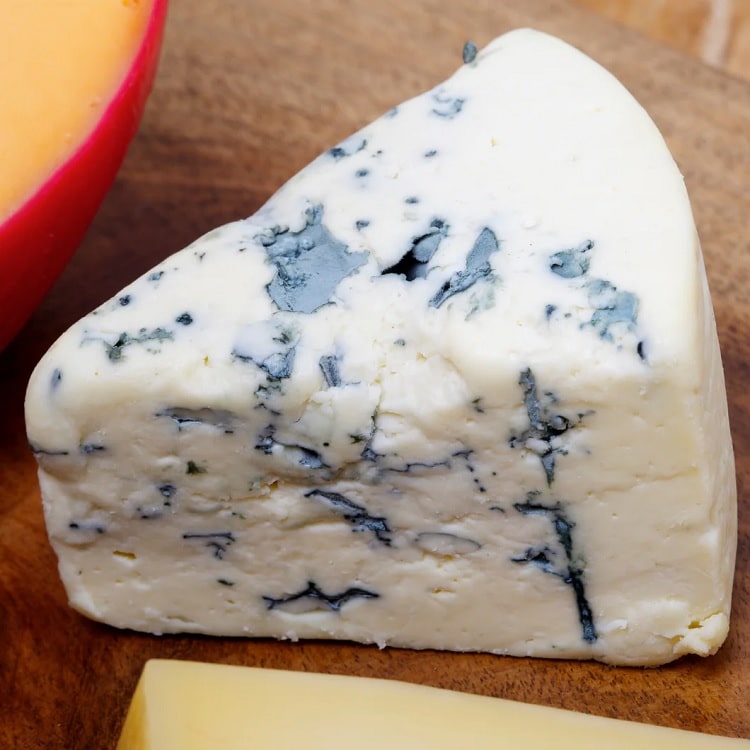
Blue cheese is an excellent source of calcium, which promotes bone health and reduces the risk of osteoporosis. The preparation process of blue cheese involves curing milk with cultures from the Penicillium mold.
Blue cheese has a tangy flavor and a distinctive odor. You can incorporate blue cheese into salads made with healthy veggies and fruits.
A 28g-serving of blue cheese prepared with whole milk contains:
- Calories: 100
- Protein: 6 g
- Carbs: 1 g
- Fat: 8 g
- Calcium: 12% of the DV
Feta
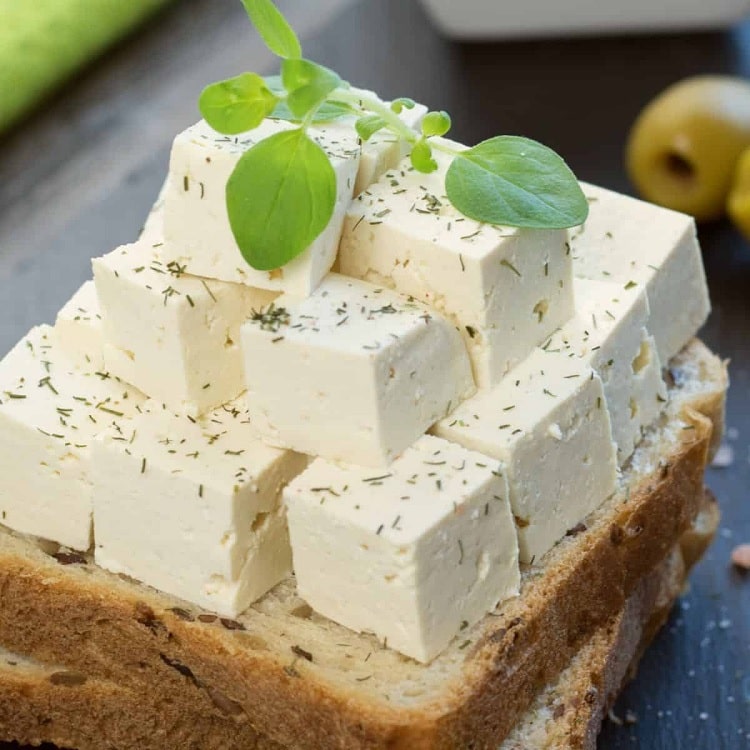
Feta is a soft cheese made from the milk of sheep or goats. Based on the milk, feta has a difference in its flavor. A highlight of this cheese type is that it is low in calories when compared with most other cheeses.
Feta contains conjugated linoleic acid, which is linked to reduced body fat and improved body composition. You can use feta as toppings to your salads or eggs or a dip to eat with fresh veggies.
A 28g-serving of feta cheese contains:
- Calories: 75
- Protein: 4 g
- Carbs: 1 g
- Fat: 6 g
- Calcium: 11% of the DV
Mozzarella
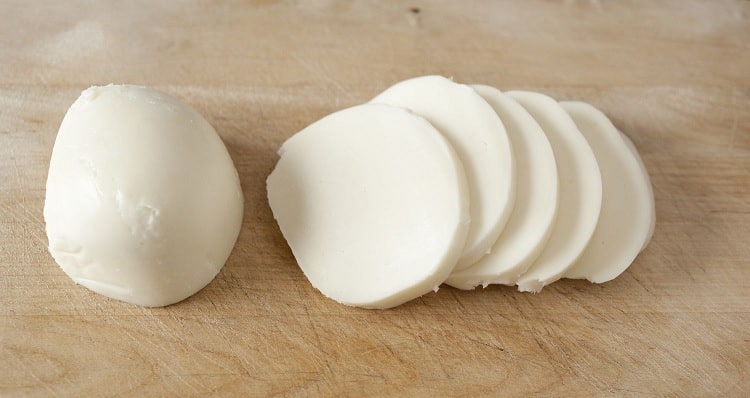
Mozzarella is a soft cheese made from cow or buffalo milk. As it is lower in sodium and calories than other cheese varieties, it can make a good choice for weight loss. Probiotics, including strains of Lactobacillus casei and Lactobacillus fermentum, are found in mozzarella. Studies have shown that probiotics are beneficial for gut health and immune health.
You can add mozzarella to Caprese salad prepared with basil, fresh tomatoes, and balsamic vinegar and consume it in moderation for weight loss.
A 28g serving of full-fat mozzarella contains:
- Calories: 85
- Protein: 6 g
- Carbs: 1 g
- Fat: 6 g
- Calcium: 11% of the DV
Ricotta
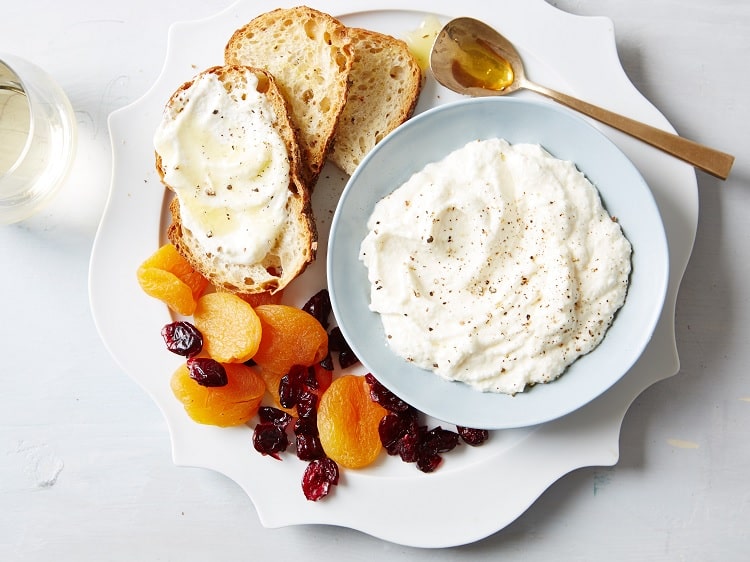
Ricotta cheese is a delicious dairy product made from watery liquids that are left over after making other cheeses. The protein in ricotta cheese may promote muscle growth, which helps to sustain weight loss. Ricotta is usually made from whey, which helps lower blood pressure and reduces cholesterol levels.
You can add ricotta cheese to salads and scrambled eggs and consume them for weight loss. Ricotta cheese can be used to make creamy dips and eaten with fresh fruits.
A 124g-serving of whole-milk ricotta cheese contains:
Calories: 186
Protein: 9 g
Carbs: 9 g
Fat: 13 g
Calcium: 20% of the DV
Parmesan
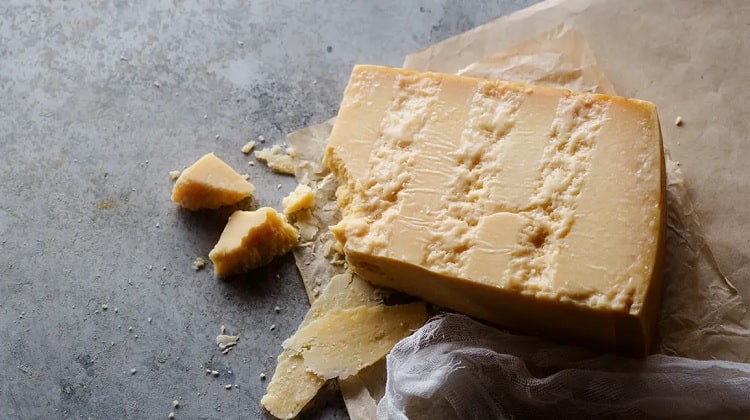
Parmesan is a hard cheese made from cow’s milk. As it is loaded with both calcium and phosphorus, it may promote bone health. Most people with lactose intolerance are able to tolerate parmesan because it is aged for a long time. You can sprinkle parmesan on eggs or fresh fruit and nuts and eat them in moderation for weight loss.
A 28g-serving of parmesan cheese contains:
- Calories: 111
- Protein: 10 g
- Carbs: 1 g
- Fat: 7 g
- Calcium: 26% of the DV
Cottage Cheese
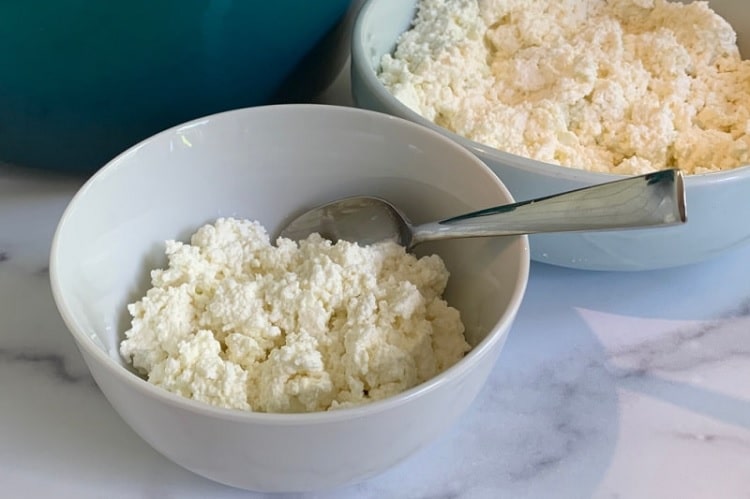
Cottage cheese is a soft cheese made from cow’s milk. The protein content in cottage cheese is much higher than in other cheeses. Including cottage cheese in your diet helps you stay fuller after meals and reduce your calorie consumption. Cottage cheese is one of the best cheeses for weight loss because it is high in protein and low in calories.
You can spread this cheese on toast, add it to scrambled eggs, blend it into smoothies, or use it as a base for dips.
A 110g-serving of low-fat cottage cheese contains:
- Calories: 90
- Protein: 12 g
- Carbs: 5 g
- Fat: 3 g
- Calcium: 9% of the DV
Cheddar
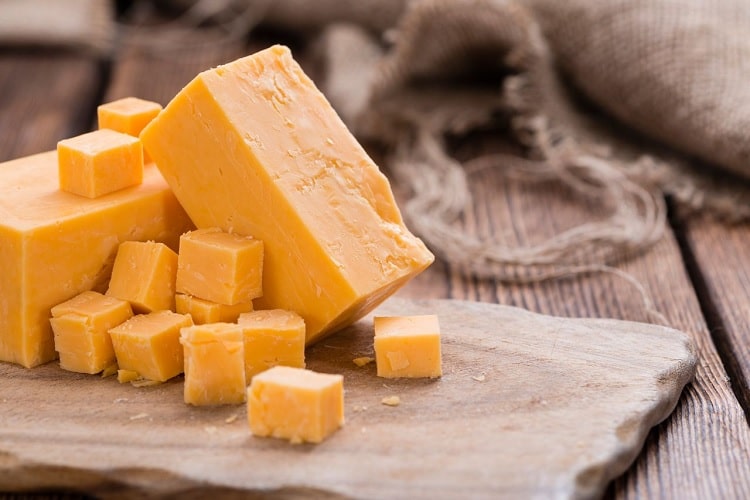
Cheddar is a semi-hard cheese made from cow’s milk. Based on the variety, the taste of cheddar ranges from mild to strong. Cheddar is a great source of vitamin K, a nutrient that is essential for heart and bone health. Consuming cheddar is a way to increase your vitamin K2 intake.
You can use cheddar in veggie recipes and eggs.
A 28g-serving of cheddar cheese contains:
- Calories: 115
- Protein: 7 g
- Carbs: 1 g
- Fat: 9 g
- Calcium: 15% of the DV
Swiss
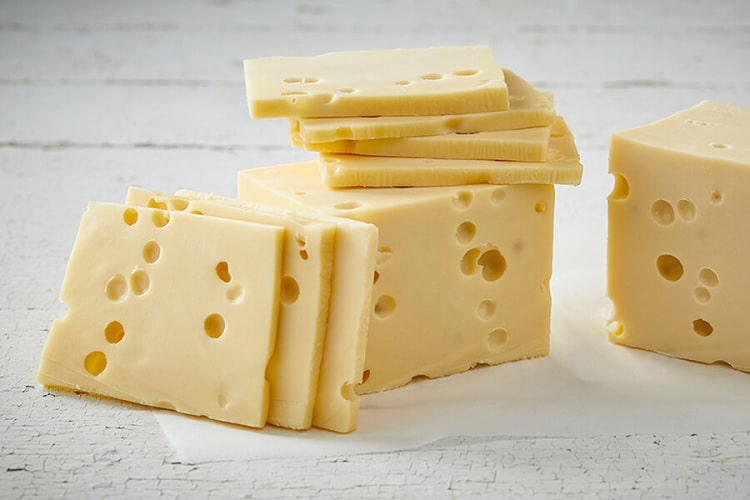
Swiss cheese is semi-hard cheese made from cow’s milk. The taste of Swiss cheese is mild and nutty. Swiss cheese is recommended for people who need to limit their salt intake because it has less sodium than most other cheeses. Because of its protein and calcium content, it can contribute to healthy, stronger bones. The presence of zinc in this cheese supports a healthy and strong immune system.
You can use Swiss cheese in sandwiches, egg bakes, and soups or consume it with fruit.
A 28g-serving of Swiss cheese contains:
- Calories: 111
- Protein: 8 g
- Carbs: 0.5 g
- Fat: 9 g
- Calcium: 19% of the DV
Goat Cheese

Goat cheese is a soft cheese made from goat’s milk. Since goat cheese is lower in lactose and provides different proteins, some people may find it easier to digest this cheese than other cheeses. The probiotics in goat cheese are beneficial for gut health and improved immunity.
You can crumble goat cheese on salads and eggs. Goat cheese can also be whipped to make a dip for fresh fruits or vegetables.
A 28g-serving of goat cheese contains:
- Calories: 75
- Protein: 5 g
- Fat: 6 g
- Calcium: 3% of the DV
The Bottom Line
Cheese is a dairy product that is widely consumed by people all around the world. When it is included in a healthy pattern of eating, cheese can be beneficial for weight loss. Most cheeses are rich in protein and calcium, both of which help people lose weight. Probiotics found in certain cheeses help improve gut health and immunity.
Though eating cheese supports weight loss, it is best to consume it in small portions during weight loss. There are numerous low-fat and low-sodium cheese types that you can choose from to lose weight. We have discussed the nine best cheese varieties for weight loss in this article. You can incorporate them in optimal portions in your diet to support your weight loss efforts. Overall, cheese can be a healthy addition to a weight-loss diet.
Faqs
Cottage cheese is often recommended for losing weight because it is high in protein and low in calories. Several studies show that eating high-protein foods can increase feelings of satiety and help reduce calorie consumption. Eating cottage cheese in moderation can keep you satiated for long hours and support weight loss.
Cheese can help with weight loss when eaten as part of a healthy, balanced diet. But since cheese is high in calories, you should stick to a one-ounce serving of cheese a day to lose weight. It is essential to practice portion control because eating cheese in excess can result in weight gain.
Cheese can be beneficial for weight loss when eaten in moderation along with a healthy diet plan. Low-fat feta, cottage cheese, cheddar, parmesan, and Swiss cheeses are good choices if you want to lose belly fat. As these cheeses are low in calories and high in protein, they can help reduce fat in all parts of the body, including the abdominal region.

